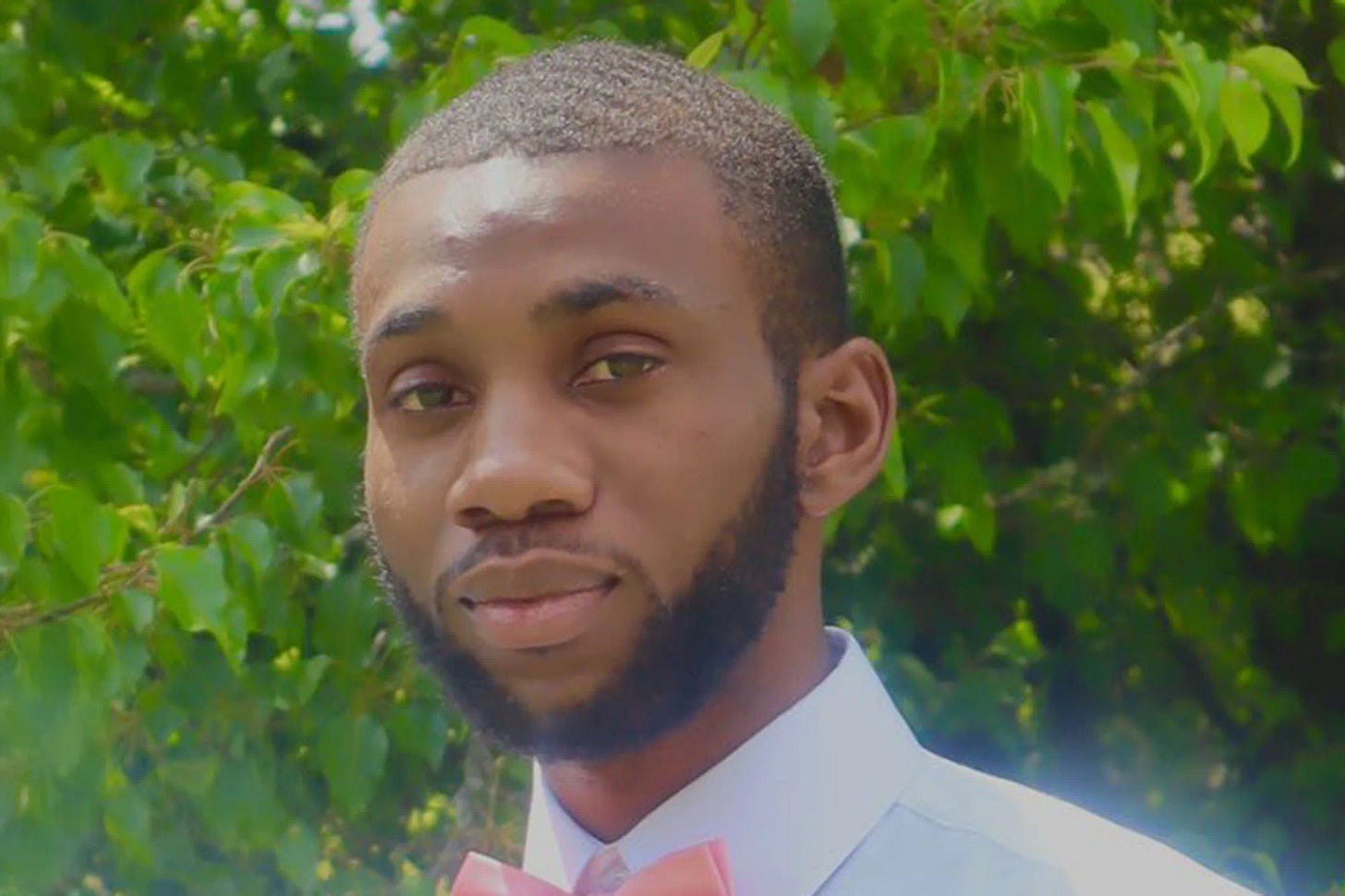
Update: Vicksburg Police Department that the second victim mentioned in this story, Cory Zukatis, is not Black, but a homeless white man. With Fox News’ recent demonisation of homeless people, we cannot yet remove the claims of lynching without the fulfilled police investigations.
Two men were found hanging in Mississippi on the same day. Demartravion “Trey” Reed, a 21-year-old student, was discovered at dawn on the Delta State University campus, hanging from a tree near the pickleball courts. Hours later, 36-year-old Cory Zukatis was found in a wooded patch beside the Ameristar Casino in Vicksburg.
In Reed’s case, it was campus police who have addressed the public. Their first statement said there was “no evidence of foul play” and “no threat to the campus.” That language is questionable as it has been delivered before the coroner’s findings or autopsy, and has already spread quickly through local media and online. In Zukatis’ case, Vicksburg police said only that an investigation was ongoing. Both deaths remain under review by the Mississippi Bureau of Investigation and county coroners. No final cause of death has been released, but the discovery of two men hanged, in the same day, in the same state is unlikely to be a coincidence.
Across social media, friends and community members describe the deaths as lynchings, raising questions about the speed with which authorities moved to downplay foul play. Unverified claims about injuries, including broken limbs, are being circulated. These reports demand independent verification through autopsies and public records, and should not have been dismissed without them, as is the case with Trey Reed.
The context makes these deaths even harder to dismiss. Hate crimes in the United States remain at historic highs, with FBI data showing more than eleven thousand incidents last year, the majority targeting Black Americans. The Southern Poverty Law Center warns of an entrenched extremist ecosystem, where racial hatred and conspiracy theories thrive.
At the same time, prominent figures are fueling that ecosystem. Donald Trump has railed about immigrants “poisoning the blood” of America and called his political enemies “vermin.” Florida Governor Ron DeSantis built his national profile by targeting Black history education and portraying diversity as a threat. Fox News personalities like Brian Kilmeade have used eliminationist rhetoric, with Kilmeade recently suggesting on air that mentally ill homeless people could be killed by “involuntary lethal injection.” Jesse Watters and Tucker Carlson, though on different platforms now, continue to normalize white nationalist talking points. This chorus of dehumanization does not stay confined to television screens; it filters into daily life, reinforcing the idea that violence is acceptable.

Fox News’ Incitement Of Violence After Charlie Kirk’s Assassination Shows The Network's True Nature
The atmosphere is charged even further by recent political violence. Just three months ago, Minnesota House Speaker Melissa Hortman and her husband were shot and killed in their home in a targeted political attack, while State Senator John Hoffmann was wounded the same night. That assassination faded quickly from headlines. Then came the killing of right-wing commentator Charlie Kirk, which was immediately framed by many outlets as the greater national trauma. Since Kirk’s death, rhetoric about vengeance, enemies, and “war at home” has escalated across conservative media. Calls to punish Democrats, LGBTQ+ people, and immigrants have intensified, and the language of political struggle has become intertwined with fantasies of cleansing or elimination. In such an environment, violence against marginalized groups becomes easier to justify.
Mississippi is no stranger to racial terror. It carries a long history of lynchings, intimidation, and official silence. To see two men hanging from trees on the same day calls up that history immediately, whether or not law enforcement chooses the word. The insistence on “no foul play” before full evidence is known deepens mistrust, especially when delivered first by a university police department with every incentive to preserve calm on campus.
These deaths may yet prove to be something other than homicide. But they sit at the intersection of a country awash in racial violence, a political culture that rewards othering, and a media ecosystem where powerful voices normalize hate. Autopsies, CCTV footage, and police records must be released in full. Until then, the only certainty is that America’s climate of hate makes such deaths impossible to view in isolation.



